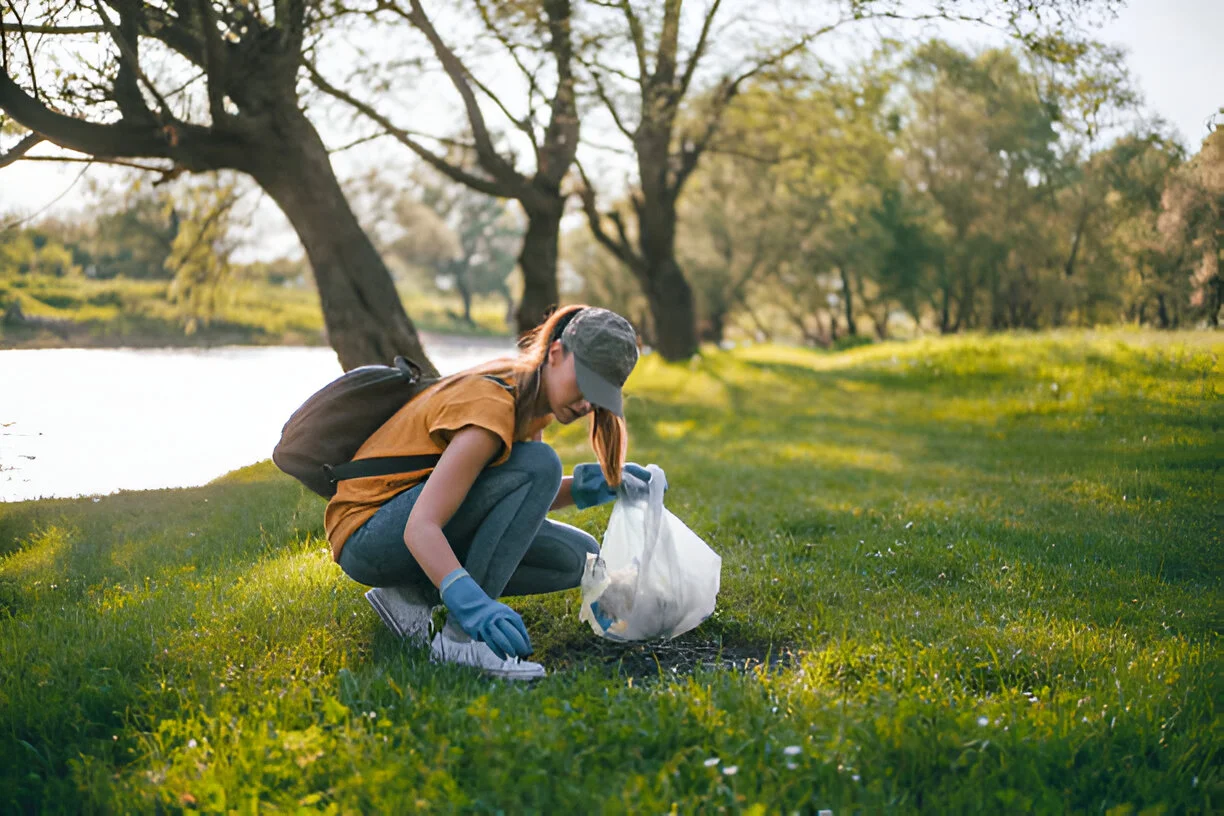
The desire to combine travel with meaningful contribution has created one of the fastest-growing segments in the tourism industry. “Voluntourism“—short-term volunteering integrated into travel experiences—appeals to our deepest aspirations: to explore the world while simultaneously improving it, to find purpose alongside adventure, and to connect authentically with communities beyond the typical tourist experience.
Yet this well-intentioned impulse requires thoughtful navigation. When approached without careful consideration, voluntourism can inadvertently create dependency, disrupt local economies, perpetuate harmful stereotypes, or prioritize visitor experience over community benefit.
At its worst, it becomes what critics call “poverty tourism” or “savior tourism”—experiences that benefit travelers’ social media profiles more than the communities they purport to serve.
This guide explores how to engage in voluntourism that genuinely benefits host communities while creating transformative experiences for travelers.
By understanding the complexities, asking the right questions, and approaching these experiences with humility and presence rather than a documentation-focused mindset, travelers can participate in a form of exchange that honors both the desire to help and the dignity of those we hope to serve.
Understanding the Voluntourism Landscape
Before exploring specific approaches, understanding the broader voluntourism context helps navigate this complex terrain more effectively.
The Evolution of a Movement
Voluntourism emerged from several converging trends: traditional volunteering programs seeking to attract participants through travel components, tourism operators adding “giving back” elements to differentiate their offerings, and increasing traveler desire for experiences that go beyond consumption to contribution.
This rapid growth created both promising innovations and problematic patterns. On one hand, it channeled traveler energy and resources toward addressing real challenges; on the other, it sometimes prioritized visitor experience over community benefit, creating what anthropologists call “staged authenticity” rather than genuine exchange.
The good news is that years of critical examination have generated clearer understanding of what works and what doesn’t. Organizations, communities, and travelers themselves have developed approaches that maximize positive impact while minimizing unintended consequences.
The Spectrum of Engagement
Rather than viewing voluntourism as a single activity type, understanding it as a spectrum helps identify the most appropriate engagement based on your skills, available time, and community needs:
- Skill-based volunteering: Contributing professional expertise in areas explicitly requested by host communities, usually requiring longer commitments and substantial preparation
- Labor contribution: Providing additional hands for community-led projects without displacing local workers
- Learning-centered exchange: Prioritizing education about local challenges and solutions, with service components as extensions of this learning
- Economic support through presence: Directing tourism spending toward community-based enterprises specifically addressing local challenges
- Advocacy upon return: Using travel experiences to become more effective advocates for policy and systemic changes that address root causes
Each approach has appropriate contexts and limitations. The key lies in matching your engagement to both community needs and your actual capabilities—recognizing that sometimes the most helpful contribution isn’t what we initially imagine.
Principles for Positive Impact Voluntourism

Regardless of specific activity or location, certain principles distinguish voluntourism that genuinely benefits communities from experiences that primarily serve traveler interests:
1. Community-Identified Needs
The most fundamental principle is ensuring that projects address priorities identified by communities themselves rather than outsider assumptions about what’s needed. This requires organizations with deep, ongoing relationships with communities and decision-making processes that center local voices.
Red Flags to Watch For:
- Programs that can’t clearly explain how community priorities were determined
- Projects that seem suspiciously aligned with visitor preferences rather than local needs
- Initiatives that remain unchanged for years despite evolving community circumstances
Positive Indicators:
- Transparent documentation of community consultation processes
- Local leadership in program design and implementation
- Flexibility in activities based on changing community circumstances
2. Relationship Before Task
Effective voluntourism recognizes that relationships built on respect, reciprocity, and continuity—matter more than task completion. This principle manifests in program structures that prioritize understanding context, building appropriate connections, and ensuring continuity beyond individual volunteer presence.
Red Flags to Watch For:
- Programs promising instant immersion or immediate impact
- Marketing focused primarily on visitor transformation rather than community benefit
- Absence of pre-trip preparation addressing cultural context and appropriate engagement
Positive Indicators:
- Substantial orientation components before active contribution begins
- Ongoing projects maintained between volunteer groups
- Structured opportunities for genuine exchange with community members
3. Building on Local Capacity
Sustainable voluntourism strengthens existing community capabilities rather than creating parallel systems or dependency. This requires understanding local assets, respecting indigenous knowledge, and designing contributions that complement rather than replace local efforts.
Red Flags to Watch For:
- Projects that could be done by local workers but use volunteers instead
- Programs creating services that will disappear when volunteers leave
- Initiatives importing external solutions without adapting to local context
Positive Indicators:
- Explicit skills transfer components in project design
- Local staff in leadership and decision-making roles
- Graduated reduction in external support as local capacity increases
4. Appropriate Expertise Matching
Effective programs match volunteer skills with genuine needs rather than creating artificial activities to accommodate unskilled participants. This might mean different roles for different volunteers based on their capabilities, or focusing unskilled contributions on areas where additional labor genuinely helps.
Red Flags to Watch For:
- One-size-fits-all placements regardless of volunteer background
- Complex tasks assigned to volunteers without relevant expertise
- Roles that seem designed to make volunteers feel good rather than create impact
Positive Indicators:
- Detailed skill assessment before placement
- Different roles based on volunteer capabilities
- Transparency about the limitations of short-term contributions
5. Responsible Storytelling
Ethical voluntourism includes thoughtful consideration of how experiences are documented and shared. This means moving beyond poverty narratives or savior framing to respectful representation that preserves dignity and presents complex realities rather than simplified stories.
Red Flags to Watch For:
- Encouragement to share photos of vulnerable populations, especially children
- Marketing materials presenting communities as helpless or volunteers as saviors
- Absence of policies regarding photography, social media, or representation
Positive Indicators:
- Clear guidelines about appropriate documentation and sharing
- Community control over how their stories and images are used
- Emphasis on structural understanding rather than emotional narratives
Selecting the Right Voluntourism Experience

With thousands of organizations offering voluntourism experiences, finding those aligned with these principles requires thoughtful research and consideration:
Questions to Ask Organizations
The following inquiries help identify programs genuinely designed for community benefit:
About Community Partnership:
- How was this project identified as a community priority?
- Who makes decisions about project direction and implementation?
- How long has your organization worked with this specific community?
- What happens with this project when volunteers aren’t present?
About Volunteer Contribution:
- What specific skills are required for effective contribution?
- What training is provided before active volunteering begins?
- How are volunteer activities integrated with local efforts?
- What metrics are used to evaluate program impact?
About Financial Transparency:
- What percentage of program fees goes directly to the community?
- How are local staff compensated compared to industry standards?
- Are there ongoing financial commitments beyond volunteer presence?
- How are decisions made about resource allocation?
About Cultural Engagement:
- What preparation is provided regarding cultural context?
- How are cross-cultural misunderstandings addressed?
- What language support is available for meaningful exchange?
- How does the program balance service activities with cultural learning?
Resources for Identifying Ethical Programs
While no certification system perfectly captures all elements of responsible voluntourism, several resources help identify more thoughtful programs:
- Learning Service provides extensive resources for evaluating volunteer opportunities, including their book “The Essential Guide to Volunteering Abroad”
- Ethical Volunteering offers a free guide with detailed questions to ask before commitment
- Tourism Concern (though no longer operating) published valuable research on ethical voluntourism still available online
- B Corporation certification indicates organizations meeting certain social and environmental standards
Additionally, university-affiliated programs, especially those focused on international development or global health, often incorporate more rigorous ethical frameworks than purely commercial operators.
Types of Impactful Voluntourism
Certain voluntourism categories consistently demonstrate potential for positive impact when structured appropriately:
Environmental Conservation
Conservation projects often provide opportunities for meaningful contribution even without specialized skills, as many tasks require simply additional hands rather than specific expertise.
What Makes It Effective:
- Clear ecological outcomes measurable beyond volunteer presence
- Integration with local conservation priorities and knowledge
- Appropriate tasks matching volunteer capabilities
- Connection between immediate activities and broader environmental education
Examples of Responsible Approaches:
- Marine conservation monitoring in collaboration with local fisheries management
- Reforestation projects led by indigenous land stewards
- Wildlife monitoring programs supporting local conservation authorities
- Trail maintenance in community-managed natural areas
Community-Based Infrastructure
Small-scale infrastructure projects can effectively utilize volunteer labor when they’re community-identified, locally led, and designed for appropriate skill levels.
What Makes It Effective:
- Projects identified through community consultation processes
- Design and management by local experts with volunteers in supporting roles
- Continuity beyond individual volunteer groups
- Integration with local maintenance capabilities and resources
Examples of Responsible Approaches:
- Water access improvements requested by and designed with community input
- School facilities enhancement during holiday periods to avoid disruption
- Community garden establishment with ongoing local management
- Renewable energy installation with local technician training components
Educational Exchange
Programs centered on mutual learning rather than one-way teaching often create more sustainable impacts and appropriate roles for short-term volunteers.
What Makes It Effective:
- Recognition of knowledge flowing in multiple directions
- Support for existing educational structures rather than parallel systems
- Appropriate matching of volunteer capabilities to genuine educational needs
- Emphasis on relationship and cultural exchange alongside formal learning
Examples of Responsible Approaches:
- Language exchange programs benefiting both volunteers and community members
- Extracurricular activities supporting existing school curricula
- Adult skill-sharing workshops based on community-identified interests
- Sports and arts programs designed with local educators
Social Enterprise Support
Contributing to community-led businesses addressing social challenges combines development impact with economic sustainability.
What Makes It Effective:
- Business models designed for continuity beyond volunteer support
- Clear role for volunteers that builds rather than replaces local capacity
- Transparent economic benefits for community members
- Integration of market-based sustainability with social impact
Examples of Responsible Approaches:
- Marketing support for artisan cooperatives preserving traditional crafts
- Technology training for community-owned tourism enterprises
- Business skill development for women’s microenterprise groups
- Product development assistance for conservation-based social enterprises
Preparing for Meaningful Engagement
The depth of your voluntourism experience depends significantly on preparation before arrival. Thoughtful groundwork not only increases your contribution but enhances your learning and connection:
Cultural Understanding
Developing basic knowledge about your destination’s historical, social, and cultural context creates foundation for meaningful engagement:
- Research not just tourist information but governance systems, major historical events, and current social challenges
- Learn about appropriate behaviors, communication styles, and relationship expectations
- Understand basics of power dynamics, including historical relationships between your home country and destination
- Identify your own cultural assumptions and biases that might affect your perceptions
This preparation transforms surface-level observations into deeper understanding, allowing more respectful and effective engagement.
Skill Development
Honest assessment of what you genuinely offer helps identify appropriate contributions and necessary preparation:
- Evaluate your actual expertise versus what the community might need
- Develop basic skills relevant to planned activities before arrival
- Consider obtaining certifications or training if engaging in specialized areas
- Prepare to learn as much as (or more than) you teach
This realistic approach prevents disappointment while maximizing your genuine contribution.
Language Fundamentals
Even basic language preparation significantly enhances both your contribution and experience:
- Learn essential greetings and courtesy phrases at minimum
- Master numbers, basic questions, and safety vocabulary
- Practice pronunciation with native speakers if possible
- Familiarize yourself with non-verbal communication norms
This effort demonstrates respect while creating opportunities for connection beyond the limitations of translators or English-speaking community members.
Expectation Management
Perhaps most crucial is developing realistic expectations about both impact and experience:
- Recognize the limitations of short-term engagement
- Understand that relationships may take precedence over visible “results”
- Prepare for complexity, ambiguity, and challenges without easy solutions
- Focus on learning alongside contribution rather than dramatic transformation
This balanced perspective prevents the disappointment that occurs when reality doesn’t match idealized voluntourism marketing.
Digital Mindfulness in Voluntourism
One of voluntourism’s greatest potential benefits—genuine cross-cultural connection—is often undermined by digital documentation habits. Thoughtful technology use significantly enhances both your experience and your contribution:
Presence Over Documentation
Constant documentation creates barriers to the very authentic experiences most voluntourists seek:
- Consider designated “documentation times” rather than constant photography
- When capturing images, do so intentionally rather than compulsively
- Focus on relationship-building moments without phones or cameras present
- Notice how digital mediation affects your perception and connection
This presence-centered approach often creates more meaningful memories than extensive photo collections.
Respectful Representation
How volunteer experiences are shared affects both communities and broader understanding of development challenges:
- Consider the dignity and agency of those portrayed in any shared content
- Move beyond “poverty porn” or savior narratives in your storytelling
- Provide context rather than simplified emotional appeals
- Obtain appropriate permissions, especially when sharing images of individuals
These practices prevent harmful stereotypes while promoting more nuanced understanding.
Digital Boundaries
Creating technology limitations enhances immersion while demonstrating respect:
- Establish specific times for connecting with home rather than constant availability
- Consider a “digital sabbath” one day per week to deepen local engagement
- Create physical separation by designating particular locations for device use
- Explain these boundaries to both hosts and people at home before departure
These boundaries often transform initial withdrawal anxiety into appreciation for deeper presence.
Alternative Documentation Practices
Non-digital documentation often creates more meaningful records while enhancing present-moment engagement:
- Journal writing integrates reflection with observation
- Sketching (regardless of artistic skill) develops observational capacity
- Audio recording captures ambient sounds alongside verbal reflection
- Collaborative documentation with community members creates shared narratives
These alternatives often produce more thoughtful records than reflexive digital capturing.
Common Challenges & Thoughtful Solutions

Even in well-designed programs, certain challenges consistently arise. Preparing for these situations helps navigate them with maturity and effectiveness:
Language Barriers
Challenge: Communication limitations create frustration and misunderstanding, potentially reducing both contribution and connection.
Thoughtful Solution: Rather than relying solely on verbal communication, develop parallel connection approaches. Learn basic non-verbal communication appropriate to the culture. Engage through shared activities where language is less central.
Identify community members interested in language exchange, creating mutual learning opportunities. Most importantly, approach language limitations with patience and humility rather than frustration, recognizing that navigating this challenge develops important cross-cultural skills.
Cultural Misunderstandings
Challenge: Different norms around time, personal space, direct communication, or relationship-building create confusion or unintentional offense.
Thoughtful Solution: Approach misunderstandings with curiosity rather than judgment. When confusion arises, seek clarification from cultural insiders before making assumptions. Recognize that discomfort often signals important learning opportunities rather than problems to be solved.
Develop the habit of considering multiple interpretations of behaviors before settling on explanations. Perhaps most importantly, acknowledge mistakes when they occur and demonstrate willingness to adapt rather than expecting accommodation to your norms.
Visible Impact Timeline
Challenge: The desire to see concrete results within short volunteer timeframes often creates disappointment or pressure for premature outcomes.
Thoughtful Solution: Reframe expectations around process rather than immediate outcomes. Recognize that relationship-building, understanding context, and appropriate integration often necessarily precede visible results. Identify micro-indicators of progress beyond physical outputs—increasing trust, knowledge transfer, or community ownership.
Connect your specific contribution to longer timelines through documentation, continuity planning, and integration with ongoing efforts. This shift from immediate gratification to process orientation often reveals meaningful impacts invisible to outcome-focused perspectives.
Emotional Overwhelm
Challenge: Exposure to challenging circumstances, different living standards, or complex social problems sometimes creates emotional responses that hinder effective engagement.
Thoughtful Solution: Develop reflective practices that process emotions without centering them in interactions. Establish regular journaling, walking meditation, or discussion with fellow volunteers to integrate emotional responses.
Distinguish between productive discomfort that drives learning and overwhelming distress requiring support. Seek appropriate perspective from program leaders or community members to contextualize observations. This emotional processing transforms potential overwhelm into deepened understanding and more effective engagement.
Before You Go: The Responsible Voluntourism Preparation Checklist

Selecting the Right Experience:
- Research the organization’s history, leadership, and community relationships
- Understand how projects are identified and prioritized by communities
- Verify that activities match your actual skills and available time
- Confirm appropriate financial models that benefit local communities
- Check references from past participants about actual versus marketed experience
- Understand how your contribution fits into longer-term community goals
- Verify the organization’s approach to responsible photography and storytelling
- Confirm appropriate child protection policies if activities involve minors
- Understand what preparation the organization provides before arrival
- Clarify expectations about accommodation, working conditions, and daily routines
Personal Preparation:
- Learn basic history, cultural context, and current challenges at your destination
- Develop essential language phrases for respectful communication
- Understand appropriate dress, behavior, and interaction norms
- Identify skills needing development before arrival to maximize contribution
- Research appropriate gifts or contributions if staying with families
- Prepare for cross-cultural communication challenges with flexibility and patience
- Develop realistic expectations about impacts, challenges, and personal experience
- Plan a personal reflection practice to process experiences constructively
- Consider your approach to photography, social media, and storytelling
Digital Mindfulness Strategy:
- Establish clear communication expectations with people at home
- Create specific, limited windows for digital communication rather than constant connectivity
- Prepare non-digital documentation tools—journal, sketching materials, audio recorder
- Consider a digital sabbath practice for one day per week to deepen immersion
- Understand and respect community preferences regarding photography
- Plan thoughtful approaches to sharing experiences that maintain dignity and complexity
- Prepare for potential technology limitations at your destination
- Consider how digital habits might affect your presence and connection
- Develop strategies for managing potential digital withdrawal discomfort
Beyond Voluntourism: Continuing the Journey
The most valuable outcomes of thoughtful voluntourism often emerge after returning home, as experiences transform into ongoing engagement and advocacy:
Share Responsibly
How you communicate your experience shapes both public understanding and your own integration:
- Focus on complexity rather than simplified narratives
- Center community resilience rather than deficiency stories
- Share your learning rather than just your contributions
- Connect personal experiences to broader systemic understanding
- Use platforms thoughtfully to challenge rather than reinforce stereotypes
This responsible communication extends your impact beyond the volunteer period itself.
Maintain Connections
Thoughtful ongoing relationship demonstrates commitment beyond the experience:
- Follow through on any promised continued support
- Share updates about how the experience influenced your perspectives
- Connect with diaspora communities from your host country
- Support community-identified initiatives through awareness or fundraising
- Facilitate connections for other resources or expertise when appropriate
These continued relationships transform transactional volunteering into genuine partnership.
Apply Learning Locally
Perhaps most importantly, integrate insights into local engagement:
- Identify similar challenges in your home community requiring attention
- Apply cross-cultural skills to diverse relationships in your daily life
- Support policy changes addressing root causes of challenges witnessed
- Adjust consumption and lifestyle choices based on new understanding
- Engage with immigrant or refugee communities using skills developed abroad
This integration transforms temporary voluntourism into lifelong commitment to positive impact wherever you are.
Deepen Understanding
View your experience as the beginning rather than conclusion of learning:
- Pursue further education about development, history, or cultural studies
- Read perspectives from community members similar to those you visited
- Connect personal experiences to broader theoretical frameworks
- Seek out critical perspectives challenging conventional development approaches
- Consider professional pathways integrating cross-cultural skills and social impact
This continued learning prevents simplified conclusions while building more nuanced understanding.
The Path Forward: From Voluntourism to Global Citizenship

Thoughtful voluntourism represents not an end in itself but a potential gateway to deeper engagement with our interconnected world. At its best, these experiences challenge simplistic understandings, develop cross-cultural capabilities, and inspire commitment to addressing shared global challenges.
The questions that arise during thoughtful voluntourism—about power, privilege, effective change strategies, and authentic connection across difference—are precisely the questions we need to engage more deeply in all contexts. When approached with humility, preparation, and presence, these experiences can develop capabilities essential for addressing the complex challenges we collectively face.
As you consider your own voluntourism journey, remember that the most powerful impact often comes not through the specific task accomplished but through the perspectives transformed, relationships built, and commitments deepened.
By approaching these experiences with thoughtfulness about both community benefit and your own presence, you contribute to evolving this travel category from potential exploitation to genuine exchange.
The world’s communities don’t need saviors, but they do benefit from thoughtful global citizens committed to mutual learning, respectful engagement, and collaborative action on shared challenges. May your voluntourism experience be a meaningful step on that lifelong journey.






